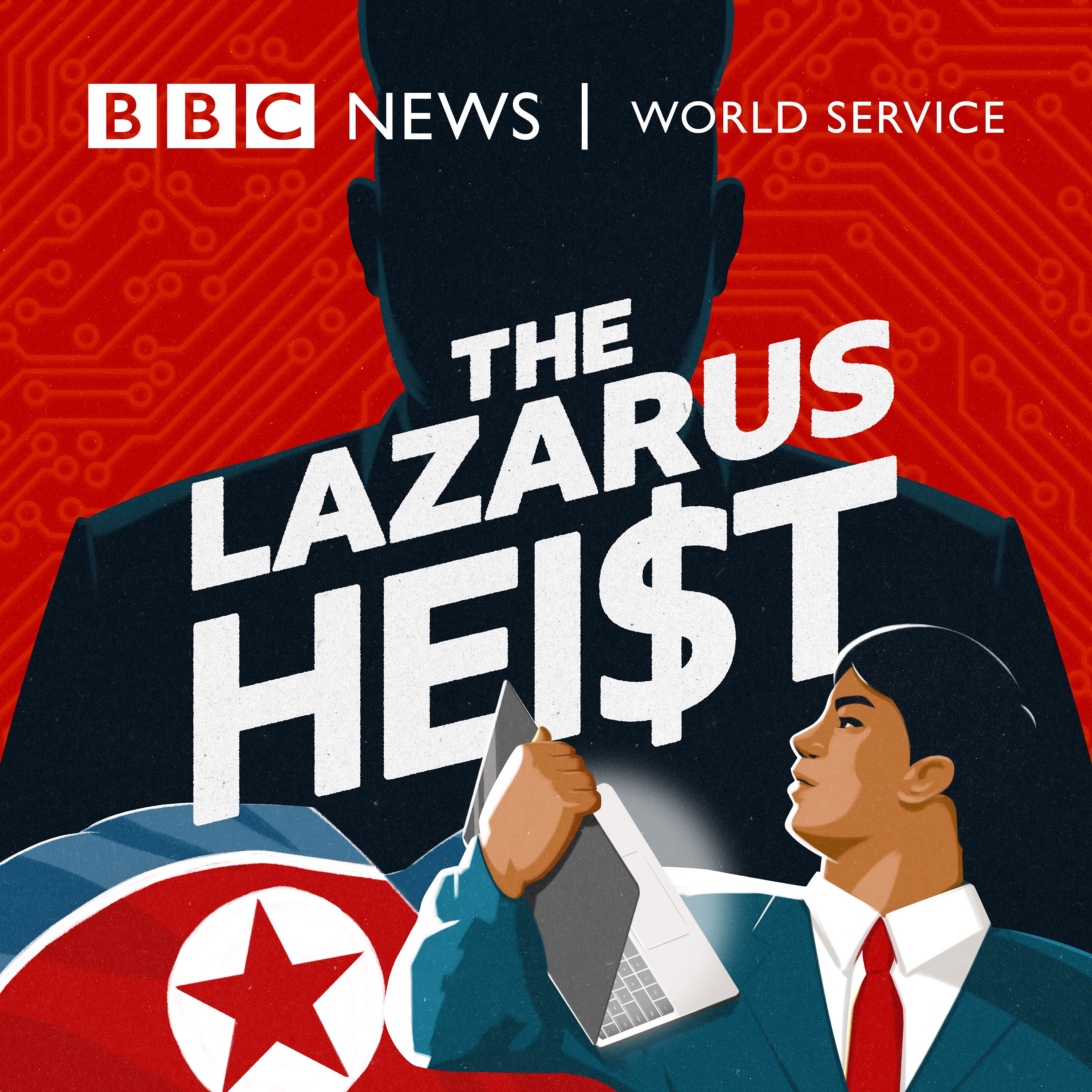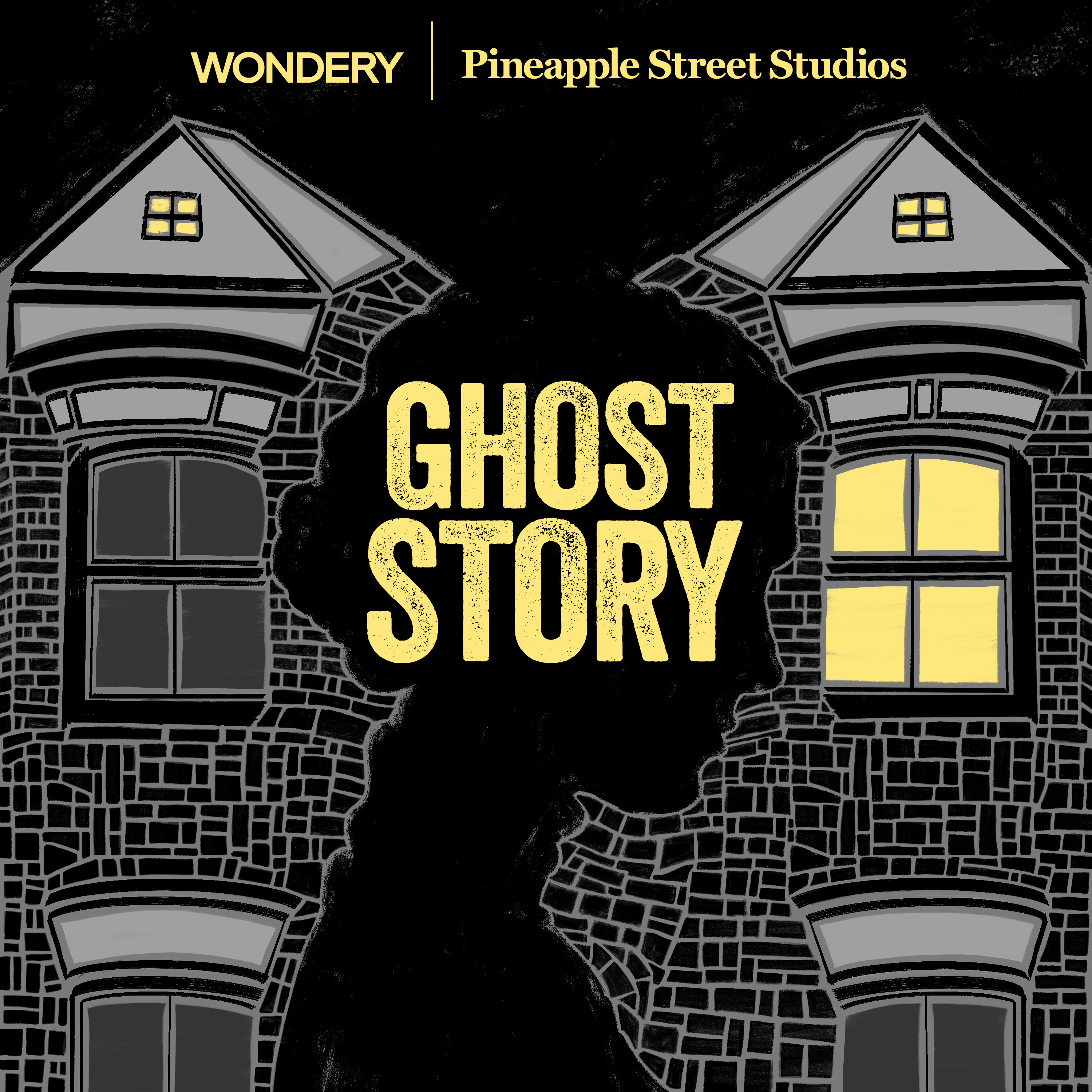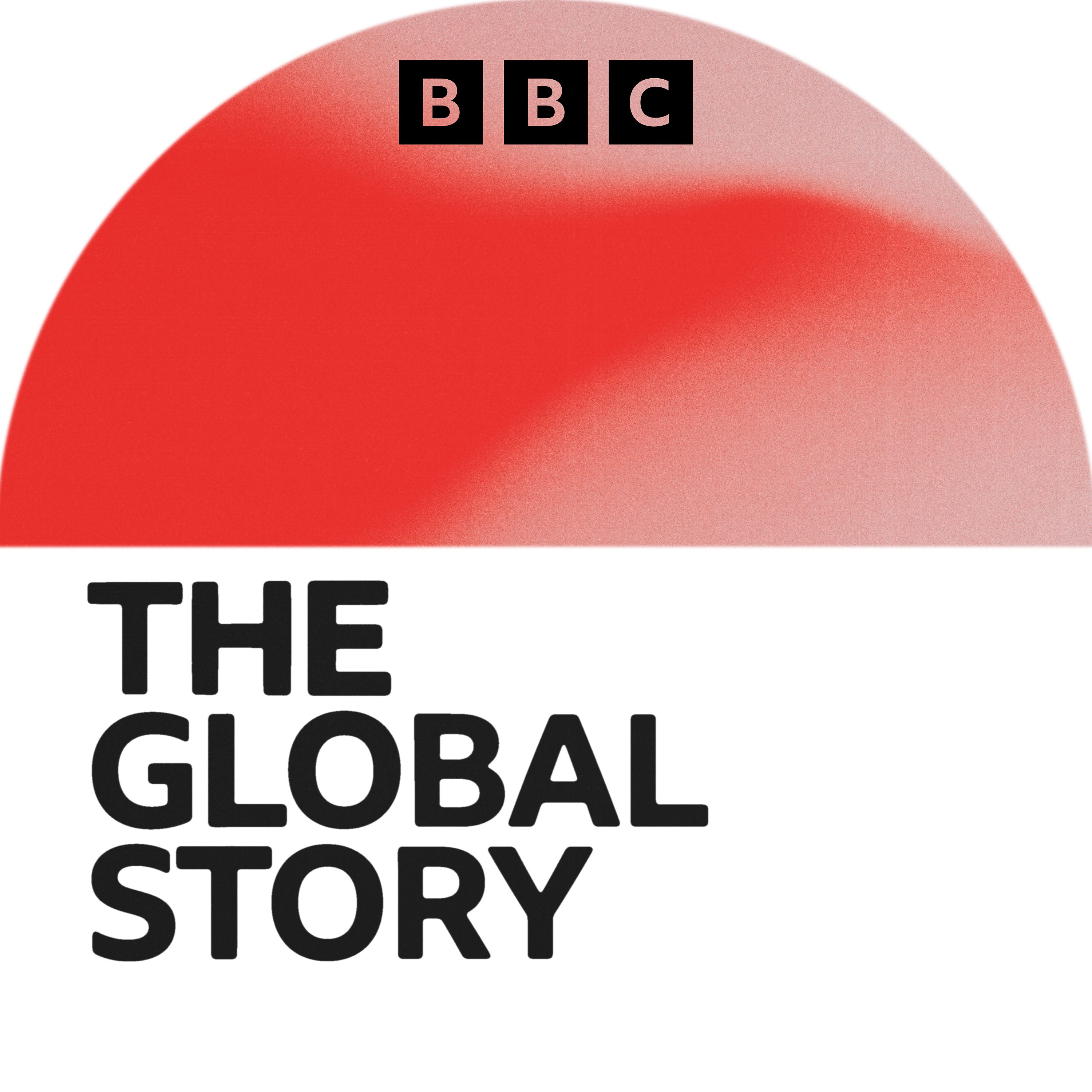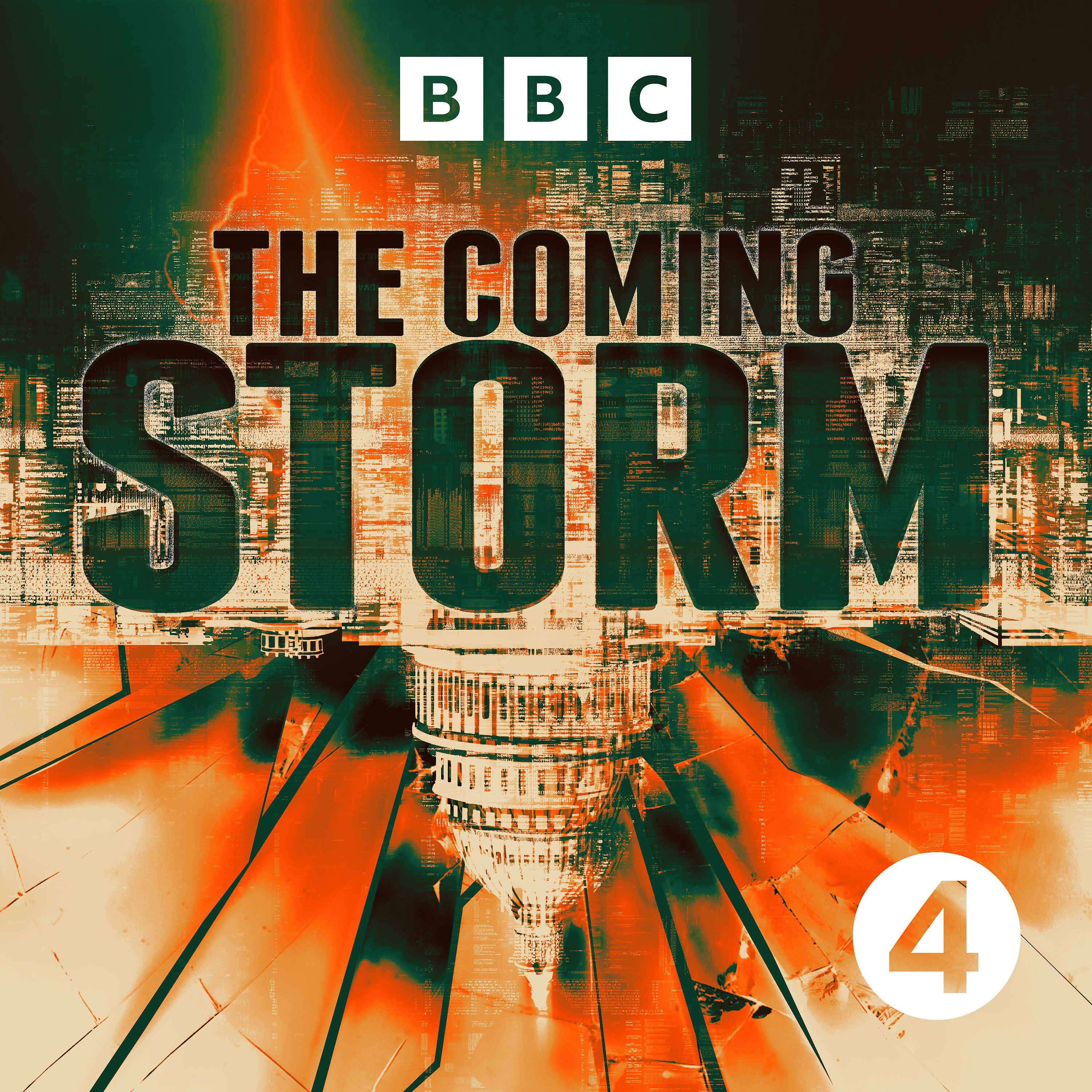
Brian's Run Pod
Welcome to Brian's Run Pod, the podcast where we lace up our running shoes and explore the exhilarating world of running. Whether you're a seasoned marathoner, a casual jogger, or just thinking about taking your first stride, this podcast is your ultimate companion on your running journey.
Join us as we dive deep into the sport of running, covering everything from training tips and race strategies to personal stories and inspiring interviews with runners from all walks of life. Whether you're looking to improve your race times, stay motivated, or simply enjoy the therapeutic rhythm of running, Brian's Run Pod has something for every runner.
Brian's Run Pod
Nurturing Relationships with Food: A Fresh Approach with Dr Monika Gostic
Discover the transformative power of food in our latest episode, focusing on nurturing a positive relationship with cooking. We chat with nutritional expert Dr. Monika Gostic, exploring how cultural influences shape our eating habits and providing practical tips to make cooking enjoyable.
• Discussing the importance of understanding your relationship with food
• Sharing cultural perspectives in cooking traditions
• Tips for making healthy meals while respecting family recipes
• Exploring the psychological aspects of cooking
• Addressing socioeconomic impacts on food choices
• Encouragement to embrace creativity and mindfulness in the kitchen
If you'd like to learn more about making your meals healthier without extra effort, check out Monika’s website where you can schedule a free 15-minute consult.
Brian's Run Pod has become interactive with the audience. If you look at the top of the Episode description tap on "Send us a Text Message". You can tell me what you think of the episode or alternatively what you would like covered. You might even get a mention!
Instagram
So you're thinking about running but not sure how to take the first step. My name is Brian Patterson and I'm here to help. Welcome to Brian's Rompod, welcome back to Brian's RunPod and it's me, your host, brian Patterson, here for you. In the second part of my chat with nutritional expert Dr Monica Gostich, we explore a fresh perspective on food. We dive into the complex connection we share with what we eat, from cultural influences to personal experiences in the kitchen. We discuss how our backgrounds shape our cooking habits and nutritional choices. This episode offers valuable insights on transforming cooking from a chore into a fun and creative outlook. We address the challenges many parents face when trying to prepare healthy meals for their families without any extra effort and provide practical tips on how to make small changes to family recipes.
Speaker 1:If you haven't listened to part one, then please do. Anyway, let's get into the episode and I really do hope you enjoy my chat as much as I did. I just want to sort of transition to something is about like we talked about earlier on is about the relationship with food. Now, my mother's Latin American, which is Nicaraguan, and she cooked. She loved cooking and as children growing up, I watched her cook and that's how I learned to cook and I think, like you said about the Mediterranean diet, I think that's kind of a very similar culture sort of thing. Do you think it is people who know how to cook? And I know my wife had an allotment and when our children were growing up that we would take them to allotment to show them where food was growing. Do you think that people have a head start there?
Speaker 2:I would say so. Yes, obviously there's no direct connection, correlation, I suppose, or at least I'm not aware of any study that is making these connections. But from observations and from what I see, if you're comfortable in the kitchen and know that, you know cooking is something, that it's a part of life and it should be nice, it should be fun, it should be something that brings you joy as well you take it like that you're more likely to engage into this activity. I guess it's a little bit like running, isn't it?
Speaker 2:If you think it's fun and you love to do it, you will go and do it, but if you think it's torture, you're probably going to force yourself for a little while and then you're just gonna find excuses not to do it. It's kind of the same way, and I'm extremely lucky that I come from a large family of women and men who like to cook, so I have been taught how to do it. But I'm also aware and I have worked with people who have families with different cultures and different rituals and rules, where, for example, their daughters do absolutely nothing until they're married. So you know, and then there's 20-year-old girls that have never fried an egg. So you have all these different cultural differences, and if you are scared of that, will you then approach it? Your relationship to food absolutely matters so do I mean?
Speaker 1:have you, like you said with some of your clients, is it? Is that one of the first obstacles you kind of have to overcome, that to sort of introduce them to the kitchen? Here's a knife, here's that kind of thing, you know. So you know they, they don't live in fear of going into the kitchen and you know, just sort of trying things out, experimenting I was extremely lucky so far that I didn't have any client that would be unwilling to cook.
Speaker 2:Yeah, I had some male clients who were living on their own and we had to strategize, for example, how to get the nutrients in without needing to cook too much, and we managed that. First we compromised for one meal a day, and that one meal a day could have been prepared in advance, so maybe that person needed to cook twice a week. That was it, and the rest we managed to work around so that they didn't actually have to physically cook, but we found ways around. That's not always possible. I think a big challenge is families, children.
Speaker 2:So when I'm working with female clients, they're the ones that tend to tend to prioritize the children, prioritize the partners and put themselves last. And it is extremely difficult for them to start working with a nutritionist or start going to a personal trainer because they say, well, I don't have, first of all, the time and the money and the mental space to cook separate meals, because it's b for balanced, a for authentic and d for deserving that. I showed the woman that she doesn't need to cook separate meals in order to make hers more healthy and that this is the mindset shift that we started working on. It's like oh, but what do you mean? I can have I don't know mac and cheese for dinner.
Speaker 1:Yeah, yeah, so okay look, you know mac and cheese for dinner.
Speaker 2:Yeah, yeah. So okay, look, you're making mac and cheese for your children and your husband. That is absolutely fine. How can we make your mac and cheese healthier? Well, let's look at this we're going to take less of mac and cheese for yourself, so you're going to have a smaller portion, but then you're just going to have a side salad and in that salad we're going to put different veggies and tomatoes and we're going to season it and we can maybe sprinkle some seeds inside so we get extra omega-3 and extra fiber and extra protein. So essentially, she's eating the same meal. She doesn't have to cook two meals, but we're just finding ways for her to add more nutrients to her meal and that takes off such a big chunk of effort from the individual and I think it's just this, in the end of the day is creativity and understanding that you don't have to be trapped, really yeah, I mean going on from that, because you always hear I was here hear of studies, government studies, about how lower income families do suffer.
Speaker 1:You know they're not, they don't have the income to be spending on. You know nutritionist or the education that kind of thing. How do you think we should, you know, get around that?
Speaker 2:Oh, you got me with this one.
Speaker 1:Oh, right Sorry.
Speaker 2:No, no, it's a big one.
Speaker 1:Maybe that's kind of like a government policy.
Speaker 2:It is Absolutely. I think this goes under public health. It's a systemic issue. So if you've read the book Ultra Processed People, that book is very clearly outlining the issue that we have with our systems right now, with the government and all the food systems and everything around us. The system is tilted towards income production, not towards human health. And it's really hard because all these ultra-processed products are cheap and available anywhere. They don't really go bad, so they can put them in the most remote places of any country.
Speaker 2:I was at the nutrition conference at some point and there was someone who was researching somewhere I think is there still old Mayan civilization, descendants of them, and how they're living and their poverty is the fact that they can't afford to buy crisps.
Speaker 2:That's poverty for them. And they've noticed actually actually the poorest single mom there. She actually made food from scratch for her children for school, where the rest of the people who had more money were buying from the truck on the way to school and that truck was selling coke and was selling crisps and prepackaged cookies and all that kind of stuff and it turned out that her old ways of preparing food, even though she was really really poor, were actually healthier than anything else that other people were doing. So her family was the healthiest family in the community. But we have it the other way around In our so-called developed world. We have it that the vegetables and the fruits and everything that comes from the earth is now a luxury yes, whereas yeah, all these ultra processed, pre-packaged, long-lasting things are cheapest chips and that's what people are for.
Speaker 2:And when you have to choose between eating your house or eating an apple, then yeah, you know, it's very difficult and I I cannot even imagine. I come from pre-war times in former yugoslavia and there was extreme poverty. I understand, I can empathize, but I was just lucky that in those times whole foods were meant for, let's say, poor people.
Speaker 1:So we actually ate very healthily, yeah yeah, I suppose, like you said, it's a culture thing, but it just made me think about, from what you were saying, let's say, a family. You know you have someone who is struggling to, I mean, you know, to put together a meal for a family. They know they want to go down and change their nutrition, whatever, but at the same time you don't want to be cooking one meal for yourself and then another meal for someone else because there's a time and income and that kind of thing. But you've just shown that you can be cooking the same meal but by just doing adapting a little bit, then you know you can make it healthier for yourself yeah, absolutely.
Speaker 2:There are always ways around it, and if people struggle, I always love to chat, so feel free to join my community on social media, or just Google my name and message me whatever you want and I'll be happy to help.
Speaker 1:Right, great, that's fantastic. Do you think going forward now that we are in a better place in terms of nutrition awareness, or do you think there's still a way to sort of, like you know, catch up? They still need to know.
Speaker 2:We need still need to know more absolutely still a very big need for us to know more and actually anonymize, because we are still very much scattered into various different camps. No, this is healthy. No, this is healthy. No, this is best for you. And I would say what is to blame here is the development of modern medicine, because ever since that accidental discovery of penicillin, and then with this development of antibiotics and treatment of many infections and all of that, we think of health in the way of. There's one thing that is wrong with me. Therefore, there must be this one solution to fix that one thing, and you can see this in people's behaviors when they have a persistent headache. So they go to NHS, they go to the doctor, and the doctor prescribed them a painkiller for the headache.
Speaker 2:Well, yes, you have killed the headache but, did you kill the reason why you're having the headache?
Speaker 1:You did not.
Speaker 2:You put a plaster over a broken bone, right? And this is our current mentality towards health, and until we go away from that kind of mindset, we're not gonna agree on anything, because people who are eliminating vegetables from their diet because they believe the vegetables is what's hurting them, they will not eat it. They were just like, well, no, because veggies is what hurts me them. They will not eat it. They were just like, well, no, because veggies is what hurts me. Instead of trying to understand that it is not vegetable that is hurting them, but it's this imbalance and them not understanding how to eat it and start with like micro-dosing towards getting their gut fixed, making sure that they eat enough omega-3, that they don't overdo it with the fiber, but they go a little bit and a little bit and a little bit, because in that time, when they eat one broccoli floret, you are feeding a certain amount of bacteria and you're allowing them to multiply and then you can eat two broccoli florets and so on and so on.
Speaker 2:But people don't think in that way. They go, stomach hurts. I ate broccoli broccoli bad, that's it. And it doesn't help that you have a lot of medical doctors, especially over in the states who have no education in nutrition, who have no education in nutrition, who have no qualifications in nutrition whatsoever, and they go on social media, use their medical doctor title and start telling people that broccoli is what's killing them.
Speaker 1:Right.
Speaker 2:That's not helping either.
Speaker 1:No, no, no, no. So yeah, I mean very much a buzzword. These days. There is a lot of sort of misinformation, as it were. Yeah, yes, absolutely if there's one, a piece of advice, because I know sometimes it's all very well, you could say a multitude of things to make changes or whatever, but is there one piece of advice you can give the audience? You know as to how they could, let's say, have a better I don't know education about their own diet, what, what would you advise?
Speaker 2:there's a lot of knowledge out there. I would say start by trying to understand your body. Yeah, with with the awareness of how your own body works comes so much power for making informed decisions. And I was not able to do these decisions until I actually learned how my own body works. And that didn't come through elimination of things. That came through paying attention to how I feel and mapping that to what I did. So an example was yesterday when I woke up feeling really tired and I had like a lower back pain, discomfort, I couldn't focus, I was absolutely down the whole day. And now, with the knowledge I have, I knew immediately that I was inflamed and there was massive inflammation happening in my body. And because I'm aware of that, I was like right, I know why the inflammation is happening. Because I'm at a certain part of my cycle when my hormones have just switched.
Speaker 2:And I know exactly what's happening. So what did I do? I rested, I skipped the gym. I ate more like comforting food, like chicken soup, and I drank lots of herbal teas and green tea, but just I gave myself a break, yeah, and I woke up this morning and I was like I feel fine, absolutely normal, let's go on.
Speaker 1:Before you. I know where you've got an appointment soon, but before I kind of going to spring this on you, but do you? I just want to ask you a couple of questions, because you've been wonderful and you've had, because, if've had, because is this? I feel this interview isn't like a normal nutrition interview and in a way, it's kind of what I wanted, because you've given us so much information, because it's very much holistic. You know it is about the mind and body and there's. So you know it's a very complex subject but, as you could say, you've given us a lot of people my audience and myself quite a few key, key tips. But what I wanted to ask you do you have a sporting icon, and it could be from anywhere. It could be from weightlifting, it could be powerlifting, it could be anyone.
Speaker 2:I think I would say it's my dad.
Speaker 1:Oh right.
Speaker 2:Because, as much so, my parents got divorced when I was very young.
Speaker 2:And as much as I actually didn't have much contact with my dad when I was growing up, I stayed with my mom. He was always very sporty. He was running, his wife and him. They go hiking, a lot mountaineering. We live in alps, like close to alps, so we're very privileged that we can just go up and down whenever we want. A lot of trips, very active trips, and all of that. And I wasn't a part of that growing up. I've never done it because I stayed with my mom and I had other things going on. But I always saw it and then when I finally was able to come to the point of my life, when I was making my own decision about me, that was somewhere in the back of my subconscious. It was just there and I was like, oh well, why don't I try and start running? Yeah, and I did, and I was like, oh, maybe it's not as bad as I thought it was.
Speaker 2:I mean, I'm still not the biggest fan, but yeah, yeah, no, that's fine it was just, it was something there and I actually did and I was running, and despite the fact that I had a strong influence from the opposition of like why, why wouldn't I go into sports, I also had this subconscious influence of my own father. So I would say that he is definitely the icon that I live up to and still he's going to be 60 this year. He's quite young, yes, and he is still running. And he has been a model role not just to myself, but also to my daughter, my cousin and to many, many children who are looking at this man and like, wow, well, if he can do it, I can do it too.
Speaker 1:So in a sort of a surreptitious way, it kind of has an influence on what your path would would be, you know, because yeah like you said you, you were quite academic at school, but who you know? At the end of the day, it's kind of in a very funny way.
Speaker 2:It kind of directed you into doing nutrition and, you know, giving lifestyle advice absolutely, and I just wasn't scared of it because I knew that there are people in my family who are doing it and I can always ask them for advice, so I didn't feel as isolated, and I think that is also a big factor. When people are starting to go on their own lifestyle journeys, it's a lonely thing.
Speaker 1:It's an isolating thing.
Speaker 2:Quite frequently you have family and friends who don't understand your choices. I mean, we can only look at the alcohol behavior. As soon as you decide that you don't want to drink alcohol anymore and declare that to your friends, there's a lot of peer pressure. It's like, oh, just have one, just this, just that. It's like, no, I don't want it. It's. It feels so isolating. So having someone in your vicinity that is a close friend or a family member who is showing you that, yes, you can do this, that's worth a lot all right, and one more question.
Speaker 1:You you've eaten already, so what did you eat today?
Speaker 2:well, I had a very busy day and I had three meals, so my breakfast because it was extremely busy I had three meals, so my breakfast because it was extremely busy was actually a vegan protein shake topped up with a high protein and high fiber cereal. Oh right, okay, yeah, it's called Surreal cereal, and they're one of the new brands that are using plant protein to create sugar-free cereal. So that was my breakfast.
Speaker 1:Yeah.
Speaker 2:Very high in protein, high in fiber. And then my lunch was a falafel and hummus salad.
Speaker 1:All right, oh yeah, very nice, very good.
Speaker 2:Yeah, oh, it's delicious, and my dinner was actually a soya mince. I'm not sure if you've ever seen that, but you can order it online and it's cheap. It's cheap as chips, so soya mints all right kind of like, like chili oh, yeah, okay, yeah yeah, that was I think my daughter might.
Speaker 1:No, I'm not sure, but she's vegetarian and my youngest daughter is vegetarian, so I like to diversify my sources.
Speaker 2:So i'm'm not vegetarian or vegan. I eat everything. I love a nice steak I do but, as I was saying before, diversity of nutrients and foods is key to having healthy gut microbiome. So getting them from different sources.
Speaker 1:Do you think it's worth? You know, because you said you've had three meals but can, or have you advised clients from having more meals but smaller?
Speaker 2:Oh, yes, 100%. That is actually my favorite method. Oh, okay, women with any sort of hormonal imbalances, or women that are yeah, they've got some sort of insulin dependent condition, for example, diabetes is one, but there's also polycystic ovaries yeah it's an insulin dependent condition and I actually recommend those, those people, to eat several times a day, five times, if, if they want to, but smaller meals which helps them with regulating of the blood sugar and preventing spikes and drops, but rather keeping everything within a healthy balance.
Speaker 1:All right, okay. Okay, I know we're closely into your time, but after I say goodbye, if you'd like us to stay on for just a little bit. But I just wanted to say thank you very much for speaking to me. You've been a fountain of knowledge and information and thanks very much. Is there anything you'd like to promote? I mean, I know you have a website.
Speaker 2:Yes, well, thank you for the opportunity. I always always know you have a website. Yes, well, thank you for the opportunity. I always, always love to spread knowledge and, yes, my website is a perfect way to start. I suppose I do write a blog, so you can go on to monicaghostagecom. As I said, simply Google my name and all the links are going to pop up, and on that blog I talk about inflammation, I talk about post-workout nutrition, I talk about hormonal imbalances various different topics. I also have various different programs that I've run, some hybrid, some fully online. So it really just depends on what people are looking for. But I would suggest the first step go onto my website and schedule a free 15 minute call with me. It's non-obligation. I'm not going to try and sell you anything, but simply log in, tell me what's happening and I might be able to actually point you in the right direction who to ask where to go and where to find information for yourself brilliant.
Speaker 1:Thank you very much. Okay, right, okay, we'll say goodbye, there, right.















